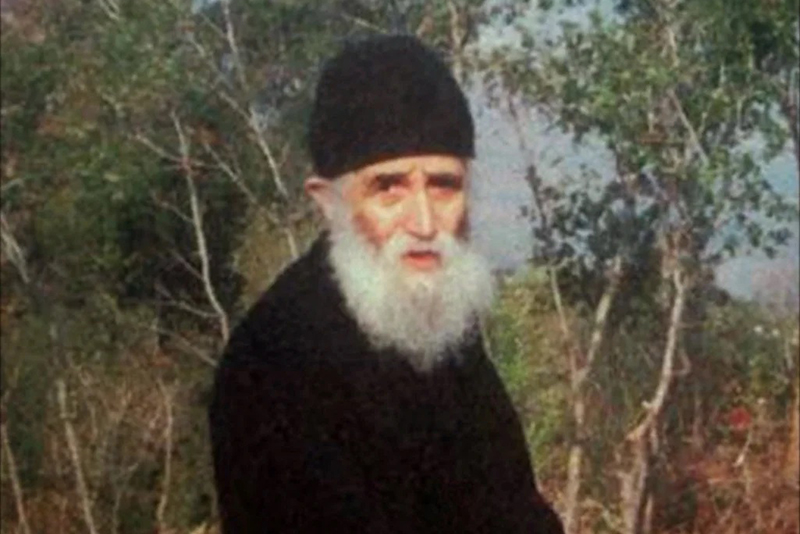
There is a remarkable story told by an eyewitness (Bishop Elladius, the successor to Saint Basil the Great) how the holy hierarch rescued a young man who had signed a treaty with the devil. The young man was infatuated with a virtuous girl, so he asked the Satan to help him to marry that girl, which he finally did. It became known, and the fallen man was brought to the holy hierarch by his weeping wife. Saint Basil saw their sincere fear and repentance and locked the young man in a cell inside a church yard for forty days, urging him to fast and pray. After that, he convened all clergy, many monastics and lay people, and asked them for help. General prayer for God’s mercy towards the apostate continued all night long. The devil came invisibly in the morning, with the handwritten note of the miserable young man, and started to attack his debtor so fiercely that even Saint Basil was hurt. The hierarch called his flock to lift their hands to the sky and prayed, “Blessed is the Lord my God! These people won’t put their hands down until You take the note back from the devil.” People were crying out loud with tears for a long time, “Lord have mercy!” Suddenly, everyone saw the note fly right into the holy hierarch’s hands. Saint Basil tore it apart, and gave the Holy Eucharist to the young man…
It is hardly possible to recount all miracles that the Lord has performed thanks to the prayers of St. Basil the Great. The holy bishop was on friendly terms and in spiritual unity with the greatest ascetics of his time. As soon as he made St. Ephraim the Syrian a deacon, the latter is said to immediately become able to understand Greek. The saint converted many pagans and Jews into Christianity. He was a loving spiritual father for the penitent sinners until his last days.

Here is another story, related by Saint Demetrius of Rostov. There was a wealthy and noble widow in Caesarea. She was totally subjugated by fornication. However, God touched her heart with His grace. The woman started to repent and weep for her sins. She meticulously remembered and wrote down every sin that she had committed since her youth. She added the sin that bugged her conscience the most at the end of the list.
The widow went to church and knelt before Saint Basil asking him to purify her with his prayer.
The saint was praying for her all night long. He handed the list back to the woman the following morning and said, “No one can forgive sins, except God.” When she unfolded the list, she saw that all her misdeeds had been wiped out, except for the gravest one at the end of the list. The woman fell to her knees in front of the holy hierarch. She wept and cried, asking him to help her wash away that last sin. The holy man replied remorsefully, “Get up, o woman, I’m a sinful man myself. I need forgiveness, too. The Lord Who has cleansed your other sins, can also relieve you from that last sin. You must spend the rest of your life in chastity and keep praying to God incessantly so that He could have mercy on you. That’s what I advise you: Go to the desert and find a monk named Ephraim there. Ask him to pray for you, too.”
The widow made a long journey to the desert and found Saint Ephraim the Syrian who told her, “He who has been able to pray away the multitude of your sins, is definitely able to pray that last sin away, too. Hurry up while he’s still alive…”
The miserable woman hurried to her native city but managed to get to Caesarea only at the moment when the body of Saint Basil was being carried to the cemetery. She ran towards the procession and started screaming at Saint Basil in despair, as if he was still alive, “Woe to me, O man of God! God shall see and judge you because you were capable of helping me but you sent me elsewhere!”
She complained out loud and threw her list of sins on the saint’s body. A clergyman took that list to see what was in it.
“Why all the fuss?” he was puzzled. “The list is empty!”
Translated by The Catalog of Good Deeds



